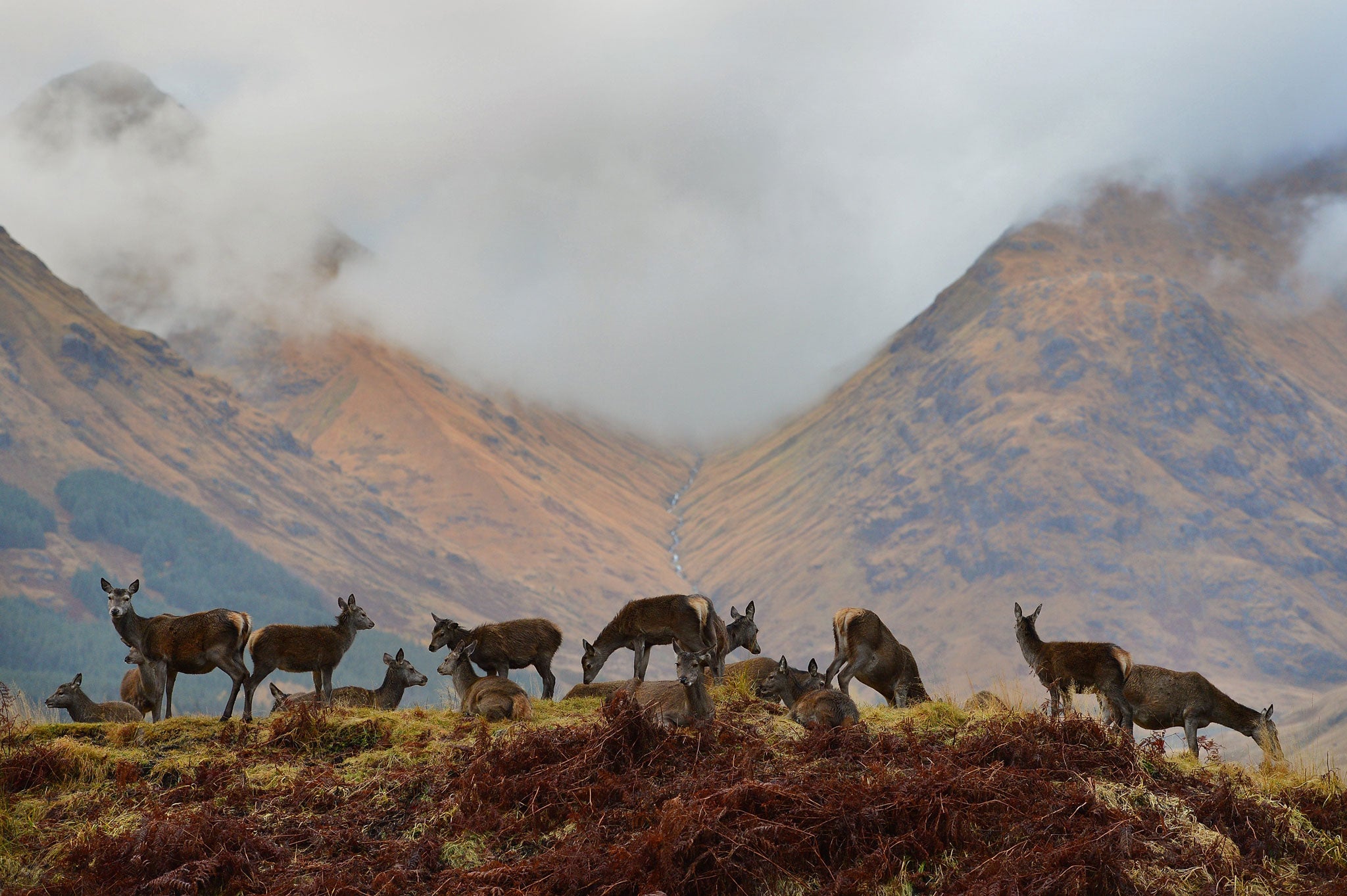Feral, By George Monbiot
Let untamed nature back into our neat landscapes. We have nothing to lose but, well, a few sheep

Your support helps us to tell the story
From reproductive rights to climate change to Big Tech, The Independent is on the ground when the story is developing. Whether it's investigating the financials of Elon Musk's pro-Trump PAC or producing our latest documentary, 'The A Word', which shines a light on the American women fighting for reproductive rights, we know how important it is to parse out the facts from the messaging.
At such a critical moment in US history, we need reporters on the ground. Your donation allows us to keep sending journalists to speak to both sides of the story.
The Independent is trusted by Americans across the entire political spectrum. And unlike many other quality news outlets, we choose not to lock Americans out of our reporting and analysis with paywalls. We believe quality journalism should be available to everyone, paid for by those who can afford it.
Your support makes all the difference.George Monbiot's latest book stands in a long tradition of back-to-nature narratives, the most famous of which is Thoreau's Walden. It is also, at one level at least, a mid-life crisis memoir.
However, Feral is both more original and more important than such a description would suggest. Rather than providing another paean to the rural landscape, Monbiot confronts the awkward questions: who owns and therefore controls that landscape? What, exactly, is natural about it? And how might we return it to genuine wildness for the benefit of everyone?
At the outset we find the author, who has has lived with the Masai and the gold miners of the Amazon, trapped in a British urban setting. He is, he decides, "ecologically bored" – evolution has kitted him out to hunt and be hunted, to survive the rigours of a complex natural environment, yet he has found himself "living a life in which loading the dishwasher present(s) an interesting challenge". He is fairly sure he is not alone in this malaise. The British public's insistence they have seen pumas peering out of suburban hedgerows, he argues, reveals a deep-seated desire to reconnect with the wild.
Like Thoreau, Monbiot withdraws, not to the centre of a wood but to Wales. Bordered by mountains, his new home is also close to a shore from which he is able to launch his kayak in pursuit of encounters with the sea that leave him energised. The big beast of British eco-journalism has, we realise, himself gone feral, at one moment popping twitching grubs into his mouth, at the next slicing up and devouring his catch raw on the beach.
But his rural retreat is not all he might have expected. The slopes rising behind his house to the Cambrian plateau - promoted as one of our last wildernesses - are in effect a desert; once covered in rainforest, they have been mown naked by sheep and support fewer flora and fauna than a suburban garden. He discovers that this ecological disaster-zone is being rigorously protected by nature conservationists; the first example of "shifting baseline syndrome", whereby scientists argue for the retention of whatever natural state existed when they were young, even when it was itself the result of an ecological catastrophe.
Monbiot's evisceration of such idiocy is pitiless. He has form in upsetting those who might be seen as his natural allies, not least in his espousal of nuclear power as necessary in the face of global warming. Once again he is rattling cages.
Monbiot's answer to this devastation – in Scotland, where absentee landlords' vast herds of deer strip the hills of trees, as well as in "sheep-wrecked" Wales – is rewilding. Partly it is a question of standing back and letting nature reestablish itself; partly it requires the reintroduction of large fauna driven to extinction through human intervention since the Bronze Age. Lynx, boar, wildcats, beavers and, yes, wolves should, he argues, be returned to Britain's highlands, forests and rivers.
The wolf roams once more in mainland Europe and North America, why not here? We would lose a few sheep; but the reduced deer population would no longer decimate the Highlands, allowing its ancient forests to return. Such areas would be once more electric with possibility: wild. Such a transformation would require a shift in attitudes. To change the future of our countryside, we have first to change ourselves.
Monbiot's own rewilding is not achieved through geographical displacement but through a shift in vision as he learns to trace the legacy of a different Britain, in which elephants roamed the forests and hippopotami wallowed in the Thames, their fossilised bones a foundation for Trafalgar Square. Wolves, he tells us, are "necessary monsters of the mind"; perhaps the same could be said of Monbiot himself.
James Attlee's 'Nocturne: A Journey in Search of Moonlight' is published by Penguin
Join our commenting forum
Join thought-provoking conversations, follow other Independent readers and see their replies
Comments